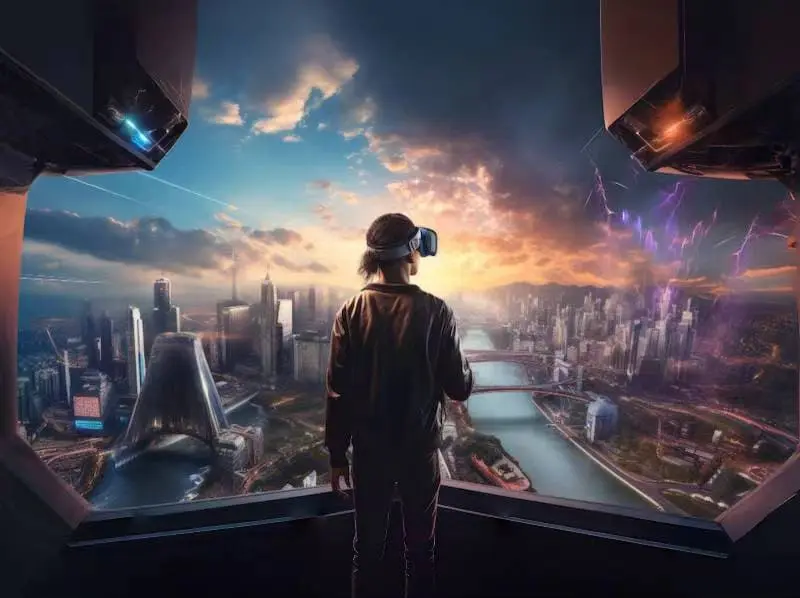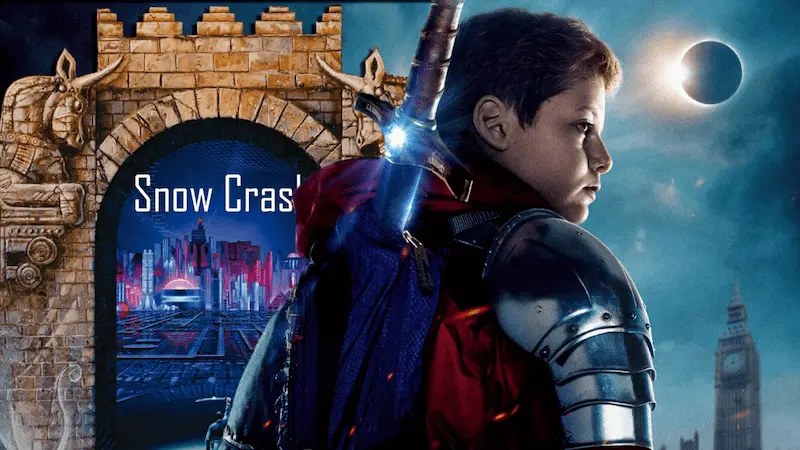
- In 1992, Neal Stephenson published “Snow Crash”, a science fiction novel about a computer virus in a virtual world, which introduced the concept of the metaverse.
- The metaverse, built on blockchain technology, transcends national boundaries and provides a decentralised and highly autonomous virtual space for activities such as learning, working and playing.
- Apple’s VisionPro, an AR headset launched on January 27, aims to pioneer the metaverse by providing intelligent interaction and rich real-world perception, potentially revolutionising work and entertainment experiences.
In 1992, American author Neal Stephenson unleashed the sci-fi gem “Snow Crash,” not about a natural avalanche but a virtual code name for a sinister computer virus. The stage? 21st-century America, ruled by mega-corporations with a sidelined government. After an economic collapse, people flock to the metaverse for freedom and pleasure.
Armed with eyewear-like VR headsets, users dive into metaverse via any internet-connected device, creating a soul-soothing virtual utopia. Amidst the metaverse, a 30-year-old delivery driver and a struggling 15-year-old courier transform into unexpected superheroes combating sinister forces aiming to dominate the entire virtual realm with the Snow Crash virus. “Snow Crash” not only challenges sci-fi norms but also ignites passionate discussions about the metaverse in our internet-savvy era. What significance does the metaverse hold for us today?

What is the metaverse?
The metaverse is a virtual world built on blockchain technology, offering a parallel space detached from the real world. Unlike our reality, it transcends national boundaries, operating in a decentralized and highly autonomous manner. Individuals adopt virtual identities to engage in activities such as learning, working, shopping, traveling, gaming, and even getting married within the metaverse. As the concept of property is introduced to virtual worlds, thanks to legislation protecting virtual currencies like game coins, people can now practically live a virtualized existence. The metaverse is not a question of whether it is needed or not; it is steadily advancing towards us, already existing and rapidly expanding.
”The future holds the potential for seamless transitions between the real world and the metaverse, leaving us pondering the importance of each. One thing is certain, whether we embrace it or not, the metaverse is bound to reshape the world.”








